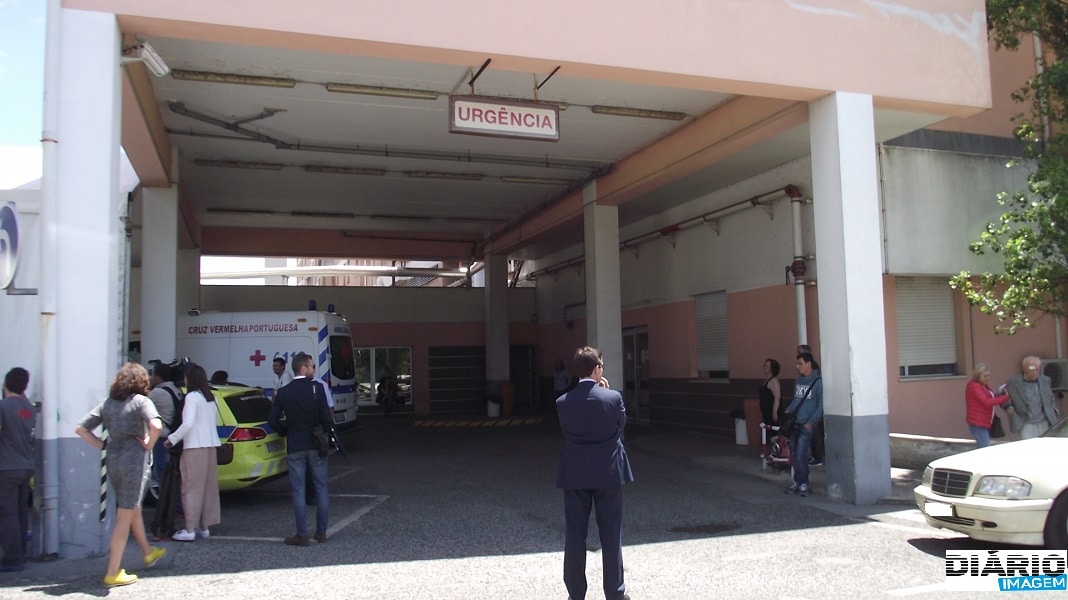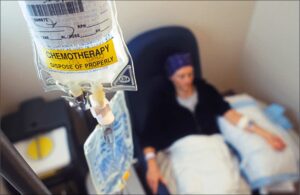30 million diagnostic tests just didn’t get done by the Portuguese national health service due to the pandemic. The situation, reported today in the context of a conversation with Miguel Guimarães, president of the general medical council (Ordem dos Médicos) means there are potentially thousands, if not hundreds of thousands, of people in this country with illnesses that have yet to be tackled.
In the case of cancers, we have already heard experts forecast a ‘tsunami’ of death building up on the horizon (click here): cases which even when they are finally diagnosed, will be too late to treat. Lives that might have been saved, being irretrievably lost.
Dr Guimarães admits “with regard to cancers, monitoring was suspended in 2020. Many continued without being diagnosed in 2021, and as a result they are (still) not in any kind of treatment…”
But it is not simply cancers that are slipping through the terrifying chasms created by ‘focus on Covid’. In terms of diabetes (another major vulnerability when it comes to SARS-CoV-2 infection) “there are thousands of new cases that have not been diagnosed”.
When these cases are finally presented to a doctor, they will have advanced far more than they would have if the health service hadn’t been so restricted, warns Dr Guimarães in an article that appears to be pushing the ‘agenda’ of those who see the need to change approach to management of this virus as a matter of urgency.
Only last night on his regular slot on SIC evening news, political pundit Luís Marques Mendes stressed that DGS health chiefs have a great deal to answer for (see below). But in terms of the million or so citizens in isolation, vast numbers of them completely asymptomatic or with the lightest of symptoms, “this makes no sense at all”, he told news anchor Clara de Sousa. Life should be returning to normal – not in the hazy time-frame mooted by the DGS (click here), but “as quickly as possible”.
Asymptomatic positives could return to their lives, he said, wearing masks, keeping physical distancing and obviously not socialising. But they could function. Expecting these people to sit at home for a week “is not normal”.
So much of the decision-making over the last two years could be described as “not normal” – even the stipulation that valid Covid Digital Certificates preclude the need for negative tests (when it is crystal clear that double and triple-jabbed people still carry the virus, transmit the virus and can become ill from the virus).
In Luís Marques Mendes’ case, the former PSD leader was speaking from experience. He explained that (despite being triple jabbed) he tested positive for SARS-CoV-2 over a week ago and had to spend seven days in isolation. His only symptom was a blocked nose (which appeared on day three). Why could he not have worked as normal in his office, he queried – obviously taking all precautions not to mix with anyone in doing so. Society simply cannot go on being corralled in this way, he stressed. “I know the director general gave a sign a few days ago that the situation in terms of rules on isolation would change, but they need to change as they make no sense at all…”
Back however to the worst aspect of the pandemic and how it has affected healthcare in general: there are now well over 200,000 people waiting for operations – and those are the ones who have managed to claw their way through the system to the moment where operations are deemed necessary.
A consultation with a surgeon can take THREE YEARS to come round. This is the true horror of it all: the 200,000 surgeries still to be performed are only the tip of the iceberg.
To give an indication of the time people are likely to wait, depending on their needs, tabloid Correio da Manhã has broken data down to specific hospitals. For example, a “very urgent” consultation with a heart specialist in Portimão will take 145 days (or 4.7 months). That is JUST for the consultation, there would then be another wait for any intervention required.
A normal wait for a specialist appointment in Portimão is much more along the lines of between 800-900 days (ie over two years).
The situation in other hospitals is no better… every single speciality requires people considered to be “very priority” cases waiting over 100 days (more than three months) just to receive a consultation.
The university hospital of Coimbra has people waiting for priority maxillofacial surgical consultations as long as 270 days (almost nine months). Just imagine that for a moment: a ‘very priority’ maxillofacial surgery will mean the patient is severely disfigured. Yet they will have to live in this condition for the best part of a year even before getting a consultation with a surgeon.
According to CM, there are more than 43,000 people who have been waiting for operations for longer than the maximum time limit (Tempo Maximo de Resposta Garantida). Some hospital centres are doing better than others, but for the people waiting, the situation is a living misery.
“DGS made mistake in numbers it has given the public every day for last years”
So accepting that Portugal has a build-up of collateral damage within the health sector of colossal proportions, it does not help that the DGS health authority has itself admitted that it inflated, by at least 25%, the number of fatalities from Covid-19 over the past two years.
An article in Expresso over the weekend admits the truth won’t come out until the pandemic is deemed to be over; and even then it may not come out due to an acute lack of personnel who would be required to carry out the necessary research.
Suffice it to say dying ‘with or from Covid’ has never been properly established.
If SARS-CoV-2 was present in a corpse, death was recorded as a Covid death. Autopsies were not performed for fear of propagating infection – yet the Portuguese public was dished up undiluted figures day-after-day, with no footnote advice that they might not be (in fact were not) completely reliable.
The ages too of fatalities disappeared months ago. There is no way today of knowing what the ages of fatalities are, though SIC stresses at least 65% have been over the age of 80.
Said Luís Marques Mendes, it may not be that important in the grand scheme of things, but this error in terms of real numbers certainly gives the DGS an “image of incompetence, carelessness and negligence”.


























